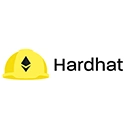Hardhat is a powerful development environment for Ethereum that not only facilitates smart contract development but also provides various tools for performance analysis. These tools help developers optimize their contracts and ensure they run efficiently on the Ethereum network. In this guide, we will explore the key performance analysis tools available in Hardhat, along with sample code and usage examples.
1. Hardhat Console
The Hardhat console is an interactive environment that allows developers to interact with their deployed contracts in real-time. It can be used to test functions and analyze gas costs directly.
Using the Hardhat Console
To start the Hardhat console, run:
npx hardhat console --network localhostOnce inside the console, you can interact with your contracts. For example:
const MyToken = await ethers.getContractFactory("MyToken");
const myToken = await MyToken.attach("your_contract_address"); // Replace with your deployed contract address
const balance = await myToken.balanceOf("some_address"); // Replace with an actual address
console.log("Balance:", balance.toString());
2. Hardhat Gas Reporter
The Hardhat Gas Reporter is a plugin that helps you measure and report the gas usage of your smart contract functions during testing. This information is crucial for optimizing gas costs.
Installing Hardhat Gas Reporter
npm install --save-dev hardhat-gas-reporterConfiguring the Gas Reporter
Add the following configuration to your hardhat.config.js file:
require("hardhat-gas-reporter");
module.exports = {
solidity: "0.8.0",
gasReporter: {
enabled: true,
currency: 'USD',
gasPrice: 21,
},
};Running Tests with the Gas Reporter
Run your tests using:
npx hardhat testThis will output the gas usage for each function call in your tests. You can analyze which functions are consuming the most gas and focus on optimizing them.
3. Hardhat Network
Hardhat comes with a local Ethereum network that allows you to deploy contracts and run tests in a controlled environment. This network provides detailed logging and debugging capabilities, making it easier to analyze the performance of your contracts.
Starting the Hardhat Network
To start the Hardhat network, run:
npx hardhat nodeYou can then deploy your contracts to this local network and test their performance in a safe environment.
4. Hardhat Etherscan Plugin
The Hardhat Etherscan plugin allows you to verify your contracts on Etherscan, which can provide insights into how your contracts perform on the mainnet. By verifying your contracts, you can view transaction histories, gas costs, and other performance metrics.
Installing the Etherscan Plugin
npm install --save-dev @nomiclabs/hardhat-etherscanConfiguring the Etherscan Plugin
Add the following configuration to your hardhat.config.js file:
require("@nomiclabs/hardhat-etherscan");
module.exports = {
etherscan: {
apiKey: "YOUR_ETHERSCAN_API_KEY" // Replace with your Etherscan API key
},
};Verifying Your Contract
After deploying your contract, you can verify it with the following command:
npx hardhat verify --network mainnet YOUR_CONTRACT_ADDRESSReplace YOUR_CONTRACT_ADDRESS with the address of your deployed contract. Once verified, you can analyze its performance on Etherscan.
5. Hardhat Profiler
The Hardhat Profiler is a built-in tool that allows you to analyze the performance of your smart contracts by simulating transactions and measuring gas consumption.
Using the Profiler
To use the profiler, you can run:
npx hardhat profileThis command will simulate transactions and provide a report on gas usage, helping you identify areas where optimizations can be made. The report will include details on which functions are consuming the most gas and suggestions for improvement.
Conclusion
Hardhat provides a comprehensive suite of tools for performance analysis, including the Hardhat console, gas reporter, local network, Etherscan plugin, and profiler. By utilizing these tools, developers can gain valuable insights into their smart contracts' performance, identify gas-intensive functions, and implement optimizations to enhance efficiency. This ultimately leads to a better user experience and lower transaction costs on the Ethereum network.

